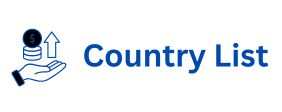Having a digital record is an advantage for all types of medical offices. Traditionally, both records and other files referring to patients had an analogue medium, usually paper, which made both consultation and the transfer of information difficult. Digital media applied to records have made it possible to include the advantages of online media in regular healthcare practice.
Health record for histories and odontograms
Computerized records make it possible to generate individual profiles for patients. Paper records require a physical space in which they must be stored, preventing the mobility of information between medical professionals.
Digital record for personal data
Personal digital profiles include data related to treatments, but it is also important that they have certain personal information.
Contact data and identification calling lists data include name, surname, telephone number, email and other information that is essential to locate the records and contact the patient whenever necessary.
Digital databases have health and commercial purposes. Using the contact information voluntarily provid by the holder of the record, we can carry out mailing or SMS campaigns, with which to reach specific people who may be interest in the clinic’s services. In this case, it is not about reaching a large number of people as happens with commercial advertising, the objective is to contact people who are already part of our database and who may be interest in knowing information about the clinic.
Financial digital record
The clinic’s cash and financial data can also be digitiz. Financial records allow for balance sheets, payments to providers, and the management of patient financing plans.
Data protection in a digital record
Any digitized record, regardless of its content, must have a series of security measures that prevent outsiders from accessing the record. In the case of medical data, these security measures are even more important.
Both the Organic Law on Data Protection and the European laws referring to the conservation and storage of medical data establish a series of protocols, aimed at the protection of private health information. At Clinic Cloud we have developed a digital space in the cloud, which establishes high security protocols for access to the system. On the one hand, authorized people can easily access the records; in addition, people who do not have a username or password will not be able to carry out queries or extract information.
The cloud has brought about a change Country List in internet security. It is no longer necessary to send information, which was a weak point for online security, now the data is saved in a shared space, to which authoriz people can have access using personal data and passwords.







